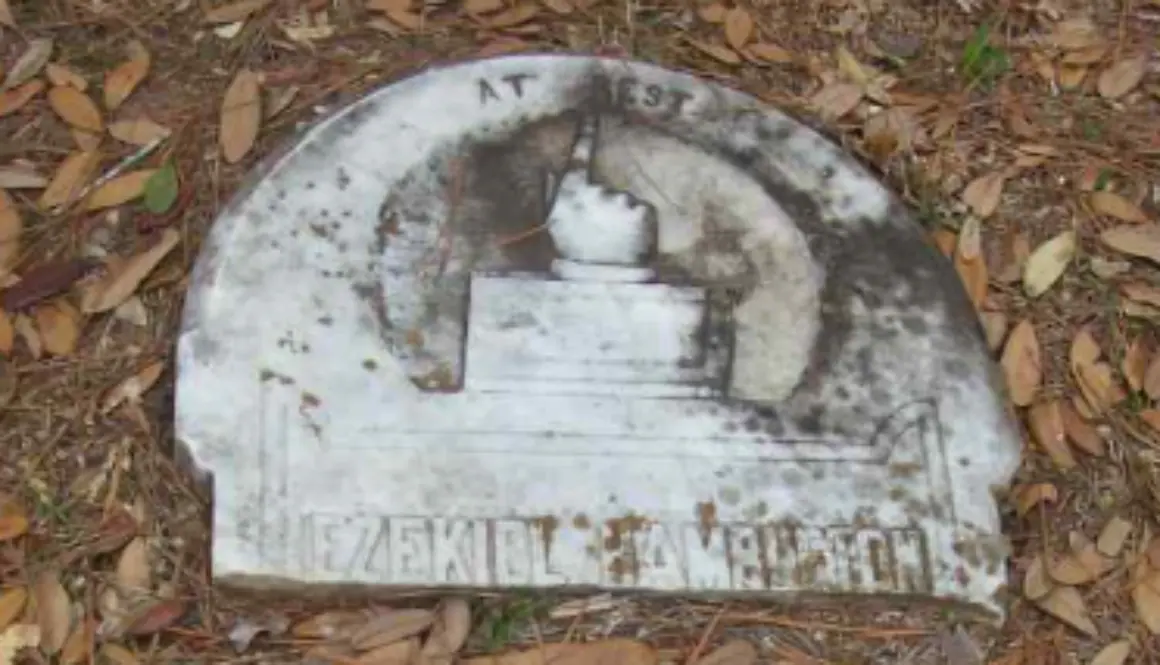Education in Early Thomas County
At the time of this blog’s posting, school children across our community are busy with end of year testing: from Milestones Finals to AP exams and all the standardized bubble sheets in between. But what was school like before government-mandated testing and number two pencils? And how did Thomas County handle educating the youth of the past? Let’s take a step back in time and learn a little about the history of education in our own backyard!
While Thomas County wasn’t founded until 1825 (two hundred years ago this December!), the State of Georgia was addressing the topic of education as early as 1777. In Georgia’s first constitution, the delegates made a provision stating, “ Schools shall be erected in each county, and supported at the general expense of the State as the legislature shall hear after point out and direct.” In case you’re wondering how serious these people were about education, our state government went on to put out three more constitutional updates before 1861, with all but the second one containing some sort of educational provision.
There were two ways to enforce this part of the constitution within a county: 1) start a “Poor School” funded mostly by the State and local government or 2) start an “Academy” which charged students tuition to cover expenses (minus a time between 1820 and 1840 where the State did provide some financial assistance to these schools and students). With these steps in place the State had a new issue: defining a “poor” student.

According to the State of Georgia in the early nineteenth century, “poor” students were either male or female and ranged in age from 8 to 18. They were mostly White although there were Free People of Color living throughout the state, including in Thomas County, who may have had the opportunity to attend school. (As an aside, The Georgia Slave Code prohibited teaching enslaved people to read; however, we know from anecdotal evidence and later documentation that this ruling did little to stop people from teaching the enslaved whether for religious and moral reasons or business reasons.) Poor students were entitled to three years of “poor schooling” which provided them with skills in reading, writing, and arithmetic (the infamous “Three R’s”). This system could be considered a precursor to modern public schooling. But for the people of early Georgia, it was considered unfashionable and even embarrassing to participate in the system. By 1840 only 12 students in all of Thomas County took advantage of State funds to achieve their education.
For the rest of Thomas County’s youth who had the resources to attend school, their educational career could be far longer and in depth. These students could find classes starting as early as five years old for both girls and boys, with subjects differing by gender. Tutors could be brought into the home, or children could be sent to various “Academies” as were available to them.

Thomasville’s first academy was chartered in 1830 with a classroom built on the corner of Madison and Monroe Streets (currently the site of a parking lot). Classes began in 1832 with 42 students, male and female, in attendance. The curriculum originally only covered the Three R’s mentioned earlier before expanding as enrollment grew. By 1836, a new classroom was built on the corner of Broad and Monroe Streets (currently the site of the Hayes House) and by 1838 new secondary courses were added such as music and languages. The Academy continued for the next decade before losing steam in light of other schools developing around the County.
Despite the lack of public education, in 1840 Thomas County, only 330 out of 6,766 white adult citizens (women included) were illiterate, a mere 4.9% of the community. By then, more schools were opening throughout the county. These were mostly temporary schools set up by groups of families and neighbors who paid a tutor to work with their children for a few months out of the year. By 1850, Thomas County’s literacy rates improved even more with only 148 out of 10,103 White citizens being illiterate or 1.5% of the population. At that point there were 14 common or public schools in the County, educating 216 students with 12 teachers.

The 1850s were an educational boom time in Thomas County. In 1850, the co-ed Fletcher Institute was founded where Harper Elementary School stands today. In 1855 the County had three schools. Grooverville Academy on the border of modern-day Brooks County had two teachers, Mrs. Smith and W.H. McMurray, and over 50 students. In Thomasville, Cornelia Hansell started the Female Seminary with three teachers including Cornelia, Addie Armstrong, and Professor Parsons teaching a number of young girls. Down the street (near the current Marriot Hotel in downtown) was John M. Dyson’s “Lecturing School” where he taught young boys the art of oration as well as ancient languages and mathematics. By 1857 a Mrs. Simmons opened Piscola Academy and by 1859 two more schools were added with Miss S.M. Kellog’s Academy teaching young children the Three R’s and secondary subjects and Mrs. Julia Fisher’s Tockwotten Academy. By the end of the decade, the movers and shakers of the town were planning for the next level of education they thought Thomas County desperately needed: a women’s college.
Like all boom times, this one quickly came to an end with the advent of the Civil War. Just as we experienced with the lock downs during Covid, students were sent home from schools across the State. For many families, education was put on the back burner as children were needed to help out at home while the men of the family were involved in war efforts. Likewise, teachers were also assisting with the War. Julia Fisher of Tockwotten Academy closed her doors in order to lead the Ladies Aid Society gathering and making supplies to send to local military units. Formal schooling became close to non-existent throughout Thomas County.
After the end of the Civil War in 1865, the 14th Amendment and Reconstruction efforts across the South ushered in a new wave of students and an increased appreciation for education. With formerly enslaved people now able to obtain and education, schools were built specifically for their benefit with a Freedman’s school and later several private schools popping up in Thomas County. Meanwhile, many of the larger schools in place before the War continued, such as the Fletcher Institute which later evolved into South Georgia College. Young’s Female College, interrupted by the War, finally opened its doors in 1871. Throughout the rest of the nineteenth century, small schools popped up around Thomas County to serve both White and Black communities reach varying levels of education.
While it will take some more research to measure how the Civil War affected literacy rates in Thomas County, it’s clear to see that many students lost out on the opportunity to learn in a formal setting during the War years. Just as we experienced during Covid, many students had to learn at home. Students were dependent on family members who may or may not have had the resources or education themselves to help younger learners. Fortunately, the lost opportunities gave way to an increased interest in education for the next generation of students. Before long, Thomas County would begin the long process to the standardized public education system we are familiar with today.


